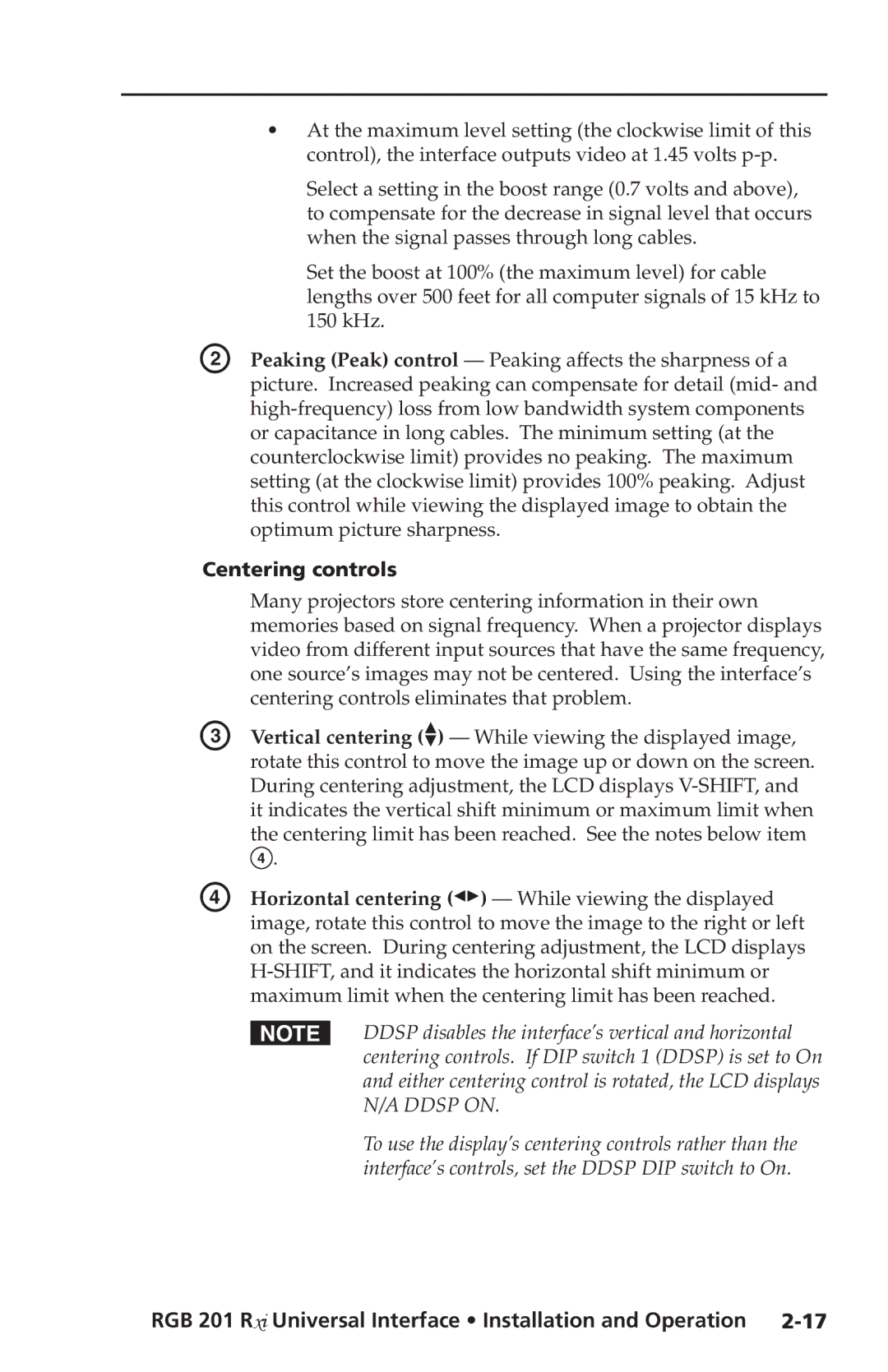
•At the maximum level setting (the clockwise limit of this control), the interface outputs video at 1.45 volts
Select a setting in the boost range (0.7 volts and above), to compensate for the decrease in signal level that occurs when the signal passes through long cables.
Set the boost at 100% (the maximum level) for cable lengths over 500 feet for all computer signals of 15 kHz to 150 kHz.
B | Peaking (Peak) control — Peaking affects the sharpness of a |
| picture. Increased peaking can compensate for detail (mid- and |
| |
| or capacitance in long cables. The minimum setting (at the |
| counterclockwise limit) provides no peaking. The maximum |
| setting (at the clockwise limit) provides 100% peaking. Adjust |
| this control while viewing the displayed image to obtain the |
| optimum picture sharpness. |
Centering controls
| Many projectors store centering information in their own |
| memories based on signal frequency. When a projector displays |
| video from different input sources that have the same frequency, |
| one source’s images may not be centered. Using the interface’s |
| centering controls eliminates that problem. |
C | Vertical centering ({) — While viewing the displayed image, |
| rotate this control to move the image up or down on the screen. |
| During centering adjustment, the LCD displays |
| it indicates the vertical shift minimum or maximum limit when |
| the centering limit has been reached. See the notes below item |
4.
D | Horizontal centering ([) — While viewing the displayed |
| image, rotate this control to move the image to the right or left |
| on the screen. During centering adjustment, the LCD displays |
| |
| maximum limit when the centering limit has been reached. |
| N DDSP disables the interface’s vertical and horizontal |
| centering controls. If DIP switch 1 (DDSP) is set to On |
| and either centering control is rotated, the LCD displays |
| N/A DDSP ON. |
| To use the display’s centering controls rather than the |
| interface’s controls, set the DDSP DIP switch to On. |
